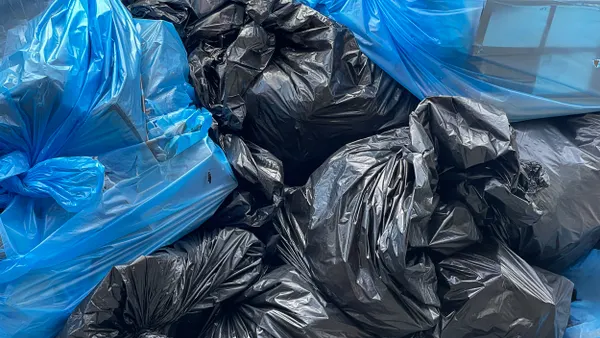Dive Brief:
- The Recycling Partnership has announced its third annual request for proposals to help local governments make the switch to cart-based recycling collection. The national nonprofit will be giving out funds on a rolling process throughout the year.
- Any county, municipality, solid waste district/authority or tribe with at least 10,000 residents is eligible to apply. For programs with weekly collections, carts must be at least 60 gallons, and at least 90 gallons for biweekly. All carts must include embedded RFID tags as well.
- The Partnership is offering $7 per household for cart purchases and $1 per household for education. Additional technical assistance and educational materials are worth an estimated $139,000.
Dive Insight:
The Recycling Partnership estimates that it has helped catalyze $20 million of new investment and place 400,000 new carts to date. The organization estimates that the average cart can collect 450 pounds of material per household every year. Recent examples of this grant funding include Santa Fe, NM, St. Paul, MN and Portland, ME, among others.
In addition to increasing the capture rate, the switch to carts has been found to help municipalities save money, especially when coupled with automated collection. Though the benefits of more efficient collection and less litter from open bins can also come with increased contamination rates in some cases. The Partnership and others have been working on targeted solutions to engage residents that they continue to test in multiple municipalities.
As more local governments look to update their recycling infrastructure but don't have the budget resources, it has become increasingly common to see this grant funding approach. The Closed Loop Fund has been a key driver for a series of recent recycling facilities and other funding sources have become available for more challenging material categories such as polystyrene foam and flexible packaging. With the need for new recycling infrastructure becoming more urgent, it could become even more common to see similar public-private partnerships.











